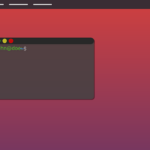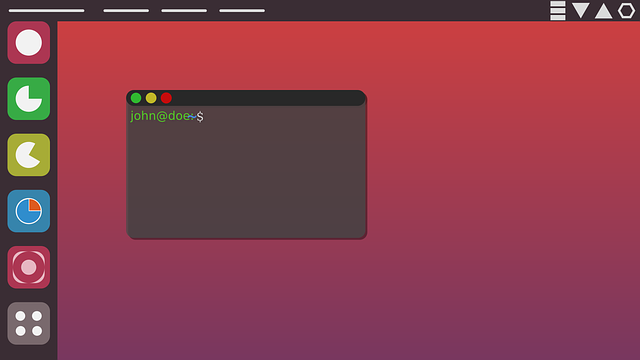Payment Processing with Linux is a highly secure and robust solution for handling financial transactions across the internet or digital networks. It leverages the Linux operating system's extensive toolset, including libraries like libcurl and frameworks such as Python's Requests or Node.js with `stripe-node`. Linux's advanced security features, exemplified by OpenSSL and hardware security modules (HSMs), protect sensitive data and communication channels, ensuring compliance with industry standards like PCI DSS. The platform's sophisticated permission and user role management further enhance security by limiting access to payment processing systems. This is complemented by efficient package management and a strong ecosystem of tools like `libpgsql`, `pgcrypto`, Stripe and PayPal REST API libraries, Klarnaa, and Bitcoin processing software like BitPay, all of which are supported by comprehensive documentation and a robust community. These solutions are continuously updated to address vulnerabilities and maintain compliance with financial sector regulations. Linux's server dominance and security capabilities make it an exceptional platform for secure and reliable payment processing workflows, suitable for businesses of all sizes, from startups to large enterprises.
navigating the financial landscape of e-commerce, businesses increasingly rely on robust and secure payment processing systems. This article delves into the comprehensive package management system available within Linux environments, a critical aspect for developers and enterprises alike. We explore the intricacies of payment processing on Linux systems, highlighting essential software tools and best practices for setting up a secure gateway. From integrating libraries and APIs to maintaining compliance and security, this guide is tailored for those embarking on or refining their Linux-based payment solutions. Key insights into popular payment processing software, practical setup steps, and development integration techniques are provided to ensure your system operates at peak efficiency and safety.
- Understanding the Scope of Payment Processing on Linux Systems
- Overview of Popular Payment Processing Software and Tools for Linux
- Setting Up a Secure Payment Gateway on Linux: Steps and Best Practices
- Integrating Payment Processing Libraries and APIs in Linux Development Projects
- Ensuring Compliance and Security in Linux-Based Payment Systems
Understanding the Scope of Payment Processing on Linux Systems

Payment processing on Linux systems encompasses a broad spectrum of functionalities, from handling financial transactions to ensuring data security and compliance with regulatory standards. The Linux ecosystem offers an extensive suite of tools and libraries designed to facilitate payment processing across various applications. These tools integrate with different payment gateways, enabling secure transactions over the internet or through other digital networks. For instance, libraries like libcurl are widely used for making HTTP requests, which can be leveraged to send and receive data in payment processes. Additionally, frameworks such as Python’s Requests or Node.js with libraries like `stripe-node` provide developers with the means to build robust payment processing solutions tailored to Linux environments.
In the realm of security, Linux systems are renowned for their robustness and the ability to implement strong encryption methods, making them ideal for handling sensitive financial data. Payment Processing with Linux can be bolstered by utilising technologies like OpenSSL for secure communication channels, ensuring that transactions remain confidential and tamper-proof. Moreover, Linux’s permission and user role management features can segregate access to payment processing systems, minimizing risks associated with unauthorized activities. This comprehensive approach to security, combined with the versatility of the Linux package management system, positions it as a reliable platform for implementing complex payment processing workflows.
Overview of Popular Payment Processing Software and Tools for Linux

Linux has established itself as a robust operating system for servers and systems requiring high security and reliability, making it an ideal platform for payment processing solutions. The Linux ecosystem offers a variety of payment processing tools and software that cater to businesses of all sizes, from small startups to large enterprises. Among the popular choices, `PGi` stands out as a comprehensive toolkit for developers looking to implement Payment Card Industry (PCI) compliant applications. It provides a secure environment for handling credit card information with its libraries like `libpgsql` and `pgcrypto`. Additionally, `LibreSSL` and `OpenSSL` are widely used open-source cryptography libraries that facilitate secure communication over networks, which is critical for payment processing.
For businesses integrating third-party payment gateways, `Stripe` and `PayPal REST API` libraries offer seamless integration with Linux systems. These libraries enable developers to easily implement payment processing functionalities using these platforms, leveraging their extensive documentation and community support. Furthermore, `Klarnaa` provides a suite of tools specifically designed for Linux, allowing merchants to handle various payment methods securely. With the advent of cryptocurrencies, software like `BitPay` has become indispensable for businesses looking to accept Bitcoin and other digital currencies. These solutions are backed by robust security features, ensuring transaction data remains confidential and transactions are authorized with utmost precision.
Setting Up a Secure Payment Gateway on Linux: Steps and Best Practices

Integrating Payment Processing Libraries and APIs in Linux Development Projects

Integrating payment processing capabilities into Linux development projects is a critical function for applications that operate within the financial sector or require transactional interactions. Developers working on Linux-based systems can leverage a suite of libraries and APIs designed to facilitate secure and efficient payment processing. These tools are meticulously crafted to adhere to the stringent security standards necessary for handling sensitive financial data, ensuring that each transaction is protected with state-of-the-art encryption and authentication protocols.
The process of integrating these libraries and APIs involves utilizing established payment gateways that offer Linux support, such as Stripe, PayPal, and Square. These platforms provide comprehensive SDKs and API documentation that guide developers through the integration process. The libraries are designed with modularity in mind, allowing for seamless incorporation into various Linux applications, from web services to desktop applications. By adhering to open-source principles, these payment processing solutions enable a transparent and secure environment for both developers and users, making payment processing with Linux a robust and reliable option in the realm of software development.
Ensuring Compliance and Security in Linux-Based Payment Systems

Ensuring compliance and security in Linux-based payment systems is paramount, given the increasing prevalence of such systems in the financial sector. Payment Processing with Linux offers a robust framework for secure transaction handling due to its open-source nature, which allows for transparent code inspection and community-driven security enhancements. The Linux ecosystem provides a plethora of tools and packages designed to maintain the integrity and confidentiality of payment data. For instance, the Linux kernel’s secure boot feature ensures that the system boots with authenticated software only, mitigating the risk of unauthorized modifications or attacks during the startup process. Additionally, Linux distributions often come with built-in support for hardware security modules (HSMs), which are critical for storing and managing cryptographic keys used in payment processing. Compliance with industry standards such as PCI DSS (Payment Card Industry Data Security Standard) is facilitated by the availability of auditable components and the ability to implement strict access controls. Regular updates and patches, backed by a responsive community and commercial support options, address vulnerabilities swiftly, thereby minimizing exposure to security threats and ensuring that payment processing remains compliant with the latest regulatory requirements.
Payment processing on Linux systems is facilitated by an extensive package management system that ensures secure, efficient, and compliant transactions. This article has delved into the essential aspects of setting up a robust payment gateway within the Linux environment, from understanding its scope to integrating libraries and APIs in development projects. By exploring popular payment processing software and tools, as well as best practices for security, readers are now equipped with the knowledge to navigate the complexities of financial transactions on Linux. Embracing payment processing with Linux offers a secure and reliable avenue for businesses to handle their transactions, adhering to industry standards and regulatory requirements. With the insights provided, users can confidently implement payment solutions tailored to their needs, leveraging the robustness of Linux for seamless and protected financial operations.


























